After the fall of Bashar al-Assad’s regime in December 2024, Dr. Khaldoon Alaswad returned to Syria that same month for the first time in 15 years after being threatened with an arrest in 2009. He spent three days visiting his family. What he saw on the ground devastated him. He said his family’s homes were hit; his grandfather’s home was destroyed and his uncles’ houses were barely standing.
In April, he returned on a medical mission. He spent five days visiting hospital cardiac catheterization labs while fulfilling a lifelong dream of his: teach at Damascus University.
Returning to his homeland – walking on its soil again and visiting his father’s grave – was unbelievable, he said. Yet, beneath the joy was a deep sadness, which sparked a mission to address the country’s medical needs.
Hailing from the city of Daraa, Alaswad immigrated to the U.S. in 1995 — something he had never planned to do.
After six years of receiving nearly free medical training in Syria — just $5 in total tuition — he hoped to give back to the country that educated him. But those plans changed after being denied the chance to further his education, teach at the university or work in the medical office his father had built for him. He said leaving was his only option.
“I never planned to leave my country,” he said, adding that he’s an only child and that his plan was to finish his training in Syria, teach at the university and get cardiology training for about couple a years outside of the country. He’d then come back and teach at the university.
“But the regime denied me that right.”
Having decided to specialize in cardiology, he moved to the U.S., which he noted is largely regarded as the leading country in that area of medicine. He began his medical residency at the University of Missouri’s medical school in Kansas City, then trained and worked in various states, including Louisiana, New Jersey and Pennsylvania, before joining a practice in Wisconsin.
He told The Arab American News that procedures and protocols he introduced in Wisconsin garnered national recognition, leading to his recruitment to Michigan. He became the head of the cardiac catheterization Lab at Henry Ford Hospital in 2014. He is also an associate professor of medicine at Michigan State University, assistant professor at Wayne State University and gives lectures internationally on his specialty.
During his most recent medical mission to Syria, he said that the medical infrastructure needs rebuilding as hospitals lack electricity, diesel and essential equipment to keep patients alive. Despite the current state of the country, he said the ingenuity of the Syrian people remains strong, noting that they’ve mobilized quickly in an effort to improve conditions.
“The people were optimistic, the people paid and sacrificed a lot,” he said. “And they sacrificed blood and sweat and poverty, half the population was displaced, and a lot of the people don’t have homes to go back to because it’s been bombed.”
The medical technology, he said, had dramatically regressed, which prevented him from treating patients requiring complex procedures. Unable to help some due to limited resources, he did what he could, MacGyvering whatever was available to help as many as possible.
“The hospital was just walls standing, no infrastructure, the elevator in the hospital didn’t work, so if a patient needs to go to the ICU on the second floor, they couldn’t go to the ICU because ICU patient by definition they need to be carried, they need an elevator,” he said. “The operating rooms were nonfunctional.
“People are waiting for bypass surgery,” he added. “The wait list is nine months.”
He reported that few Syrian doctors remain, which has forced medical students — still completing medical school — to begin practicing.
Dr. Khaldoon Alaswad working in the hospital on his most recent trip to Syria. Photo courtesy of Dr. Khaldoon Alaswad.
Alaswad is currently working with colleagues at New York University (NYU), the Mayo Clinic and the Syrian American Medical Society (SAMS) to establish ways to help Syrian doctors and hospitals.
He plans to return to Syria in July for another medical mission and to attend the first SAMS conference in Damascus post revolution, where they will introduce protocols and bring the local doctors up to speed. His son and daughter are joining him. They are recruiting doctors to join, but they must cover their own expenses, including flight, stay, food, etc. Bilingual medical students also participate in these missions to serve as translators for physicians that do not speak Arabic.
They are accepting donations and seeking any help from those interested in getting involved.
Alaswad said that witnessing these conditions reinforced his belief that every individual has the right to freedom, dignity and healthcare.
“It makes me appreciate the freedoms and democracies we live in here and makes me actually more eager to defend my freedom here in the United States and the freedom of everybody around the world,” he said. “Because human beings in this day and age should not live without freedom. Everybody should be free to choose whatever they want, everybody should have the right to live in peace and security without tyranny and everybody has the right to health care and everybody has the right to eat and education. These are basic human rights.”


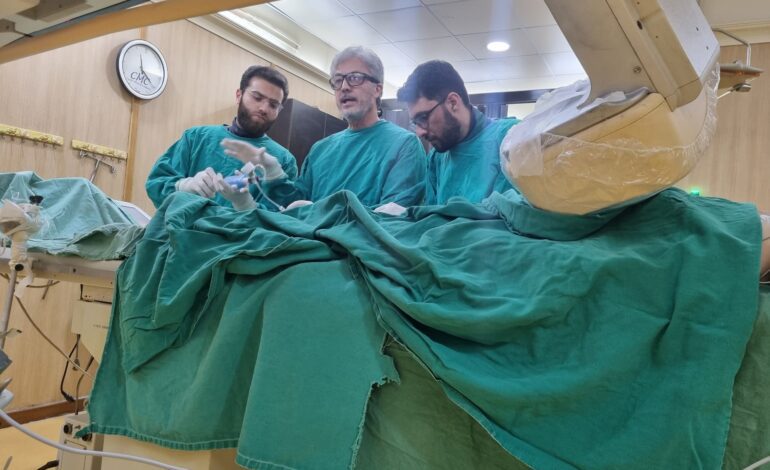
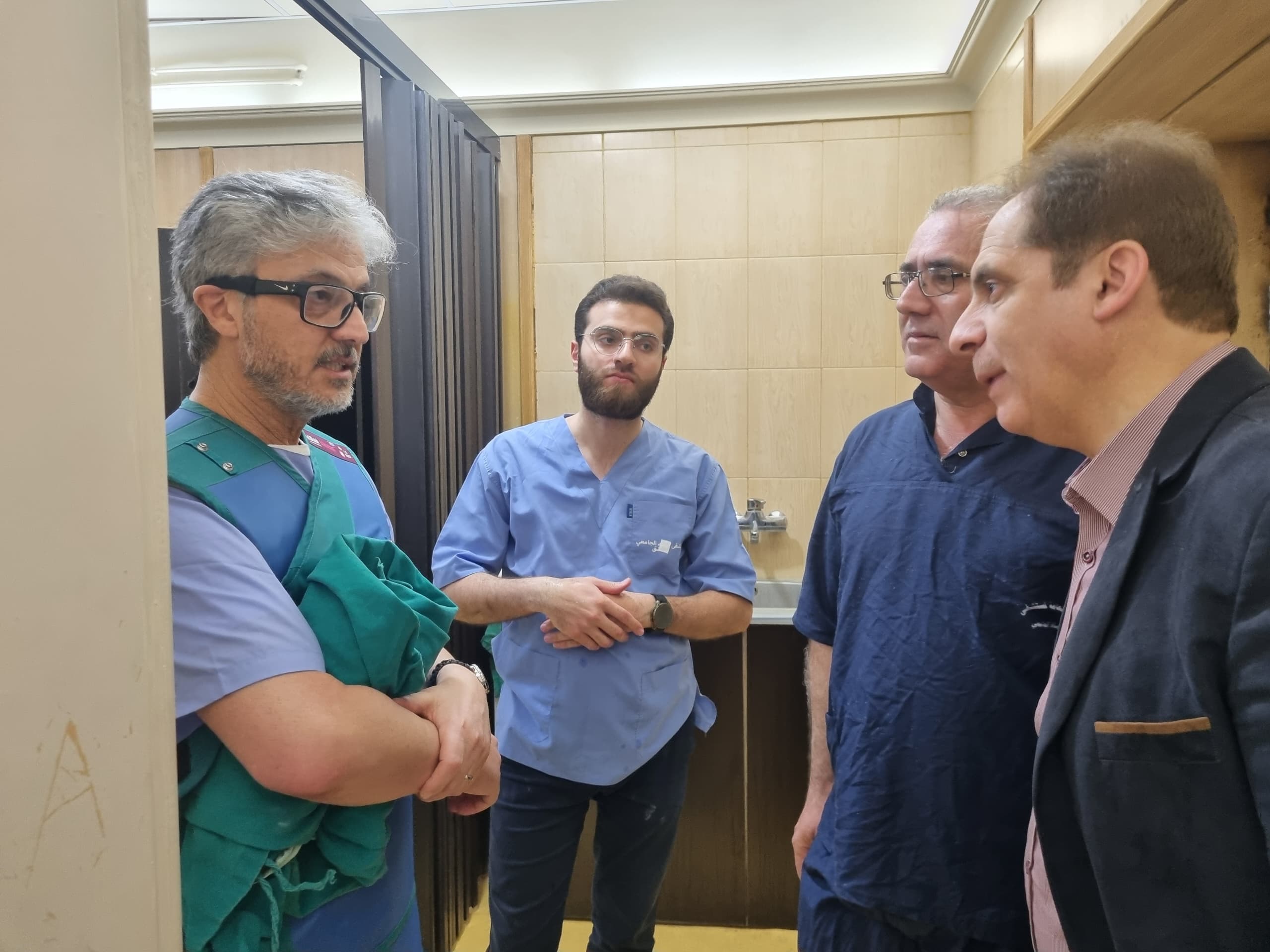
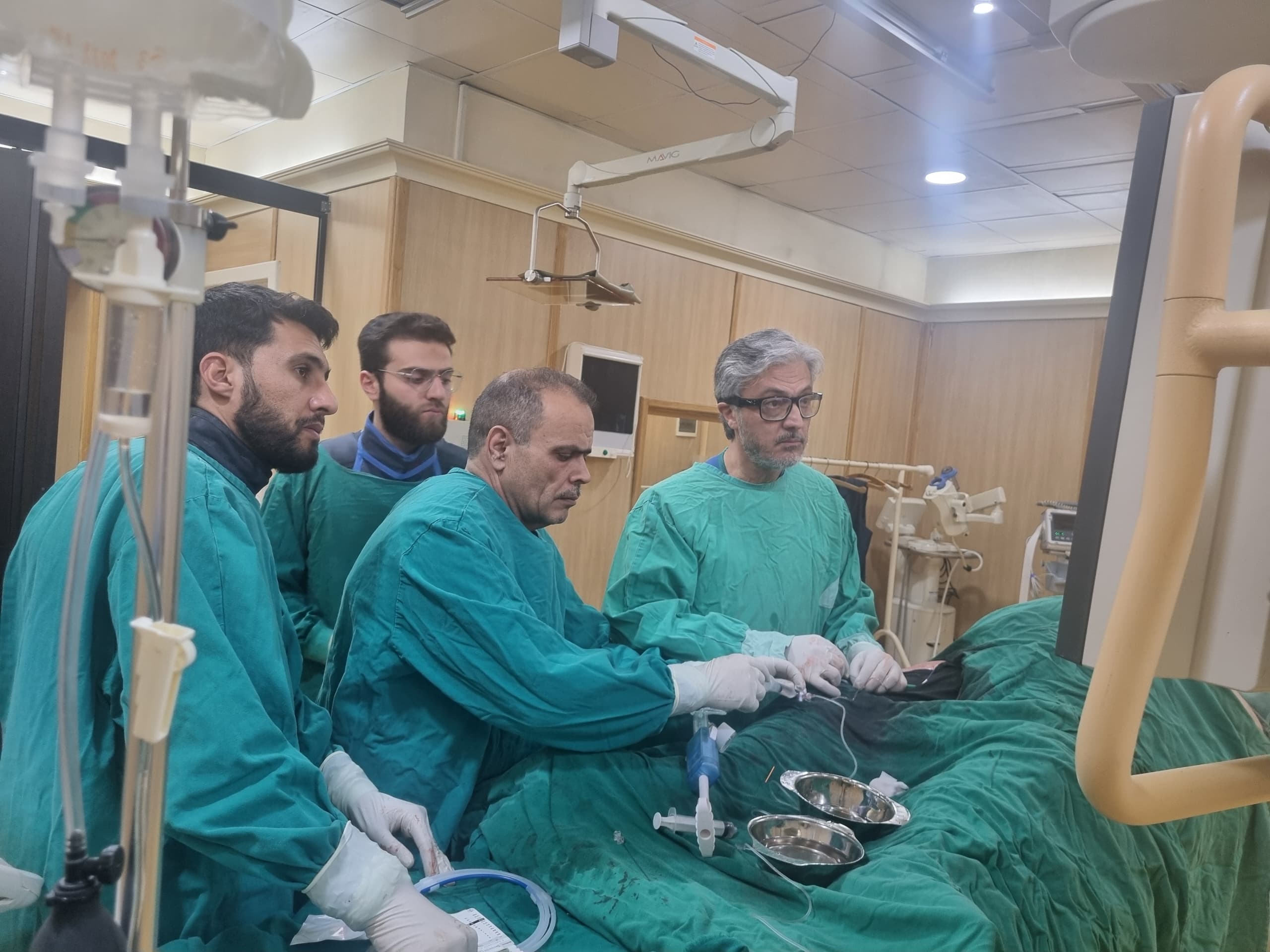
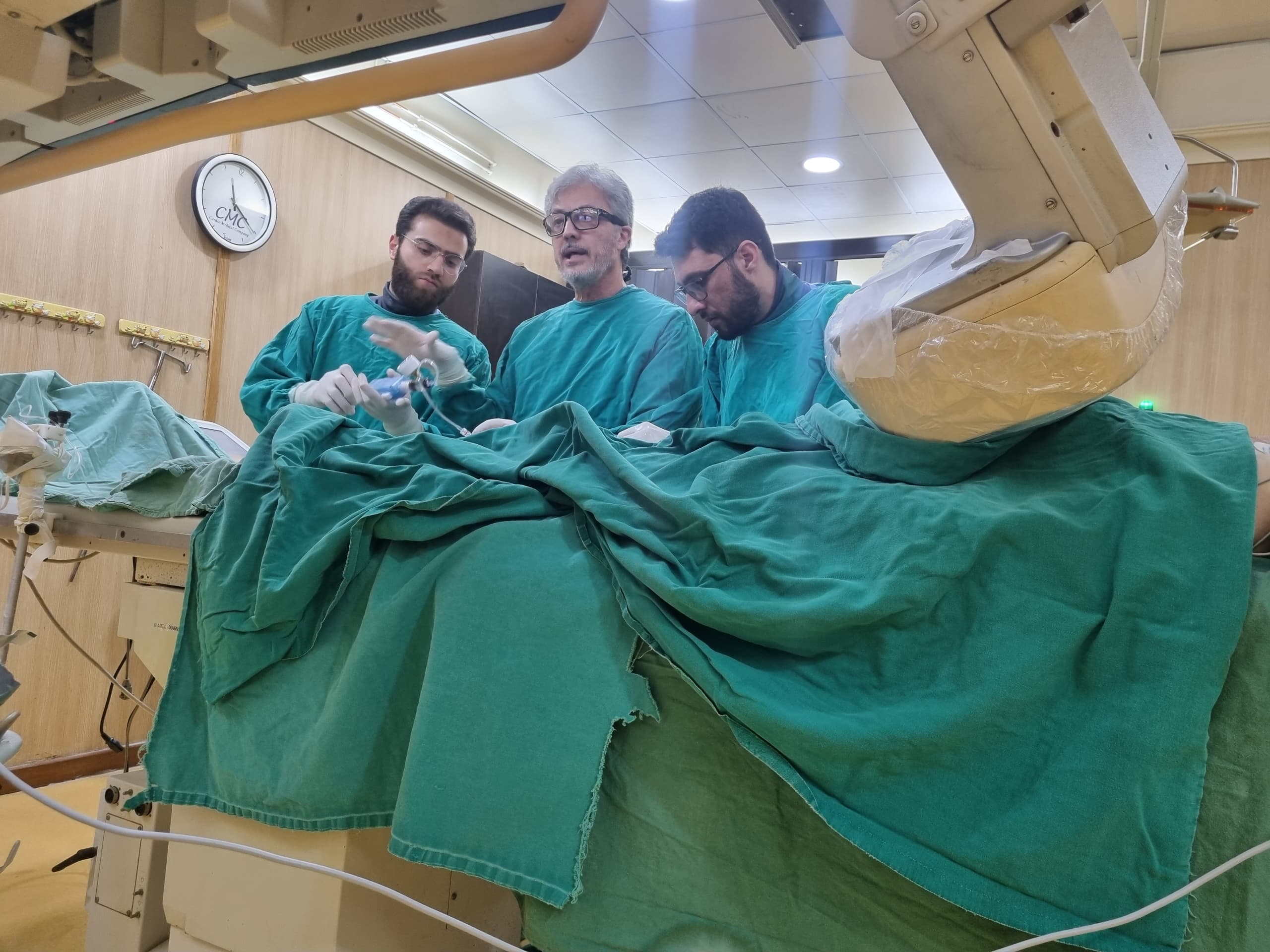
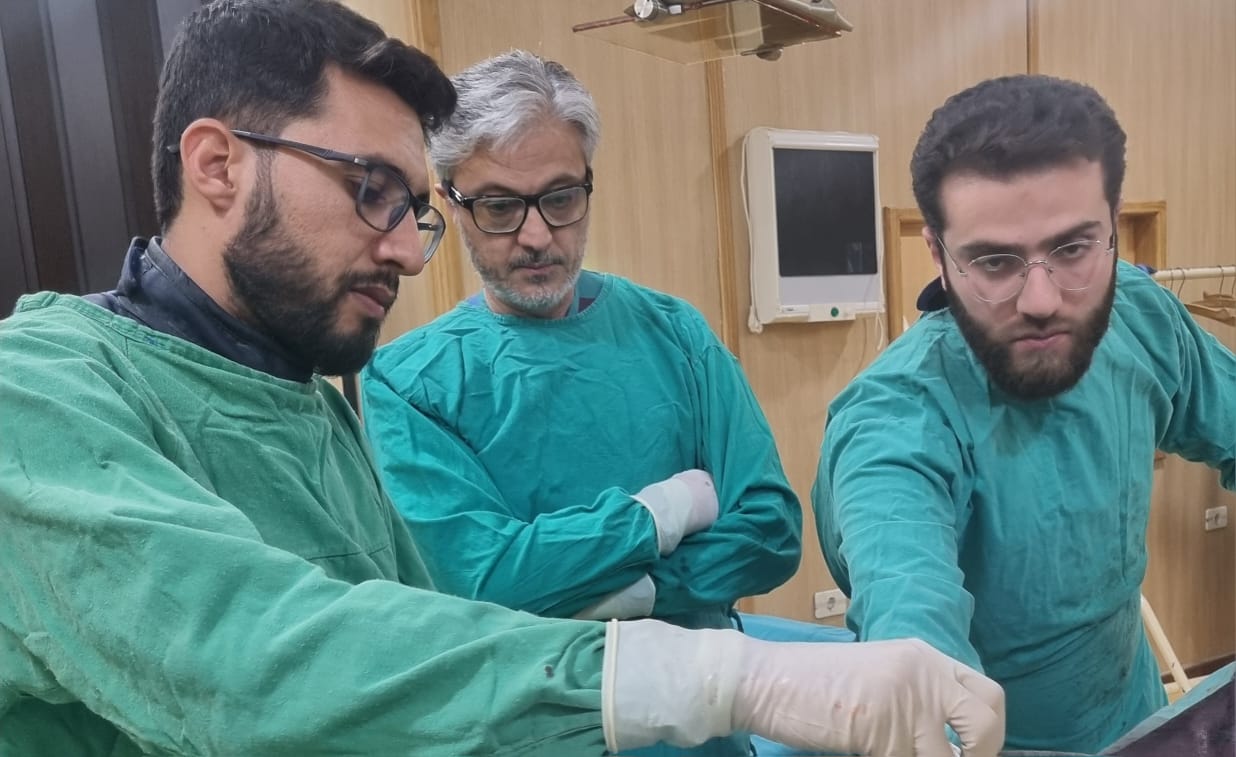
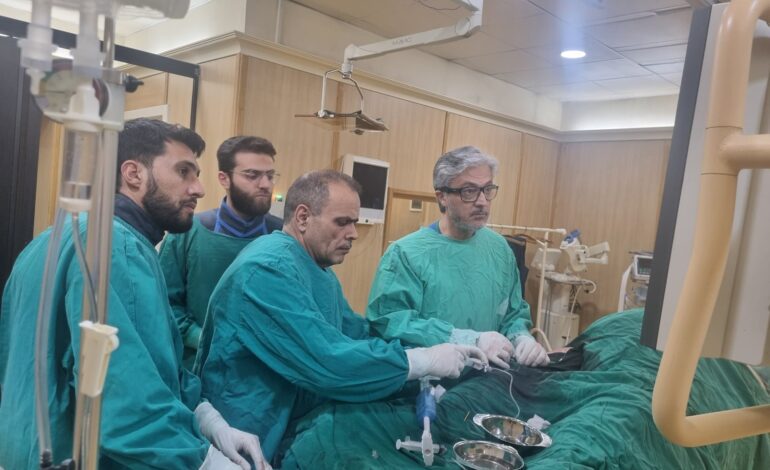
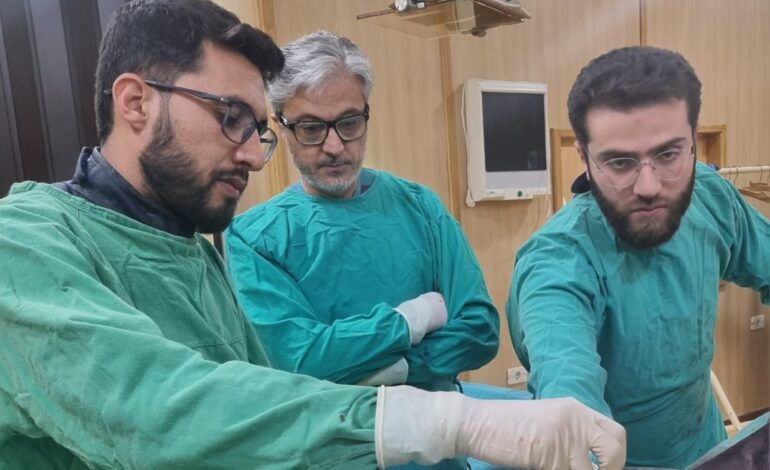
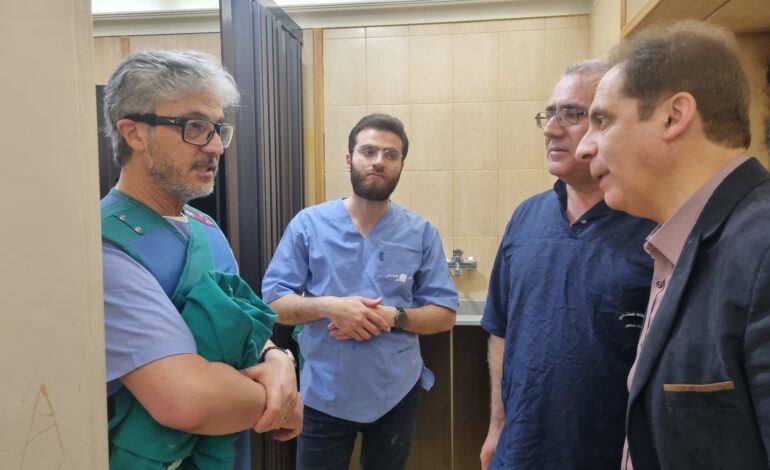
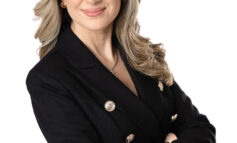
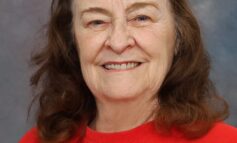
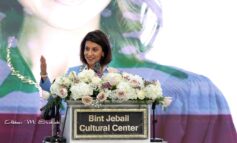
Leave a Reply